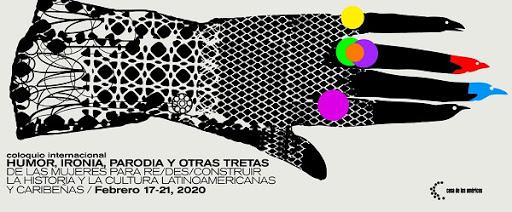
Humor, Parody and Other Tricks vs. Patriarchy
Analyses of how women writers and artists describe to the public the continued danger posed in the 21st century by machismo, violence against women, sexual harassment, rape, and even femicide . These have been the focus of a Colloquium at Casa de las Americas (February 17-21) convened by its Women’s Studies Program, created in 1994 and now directed by Dr. Luisa Campuzano.
By Mireya Castañeda
February 23, 2020
Translated and edited by Walter Lippmann for CubaNews.

Photo: Taken from the Internet
From literature, theater and cinema, women have decided to expose with weapons as powerful as humor and satire that terrible anachronism that responds to the generic name of patriarchy.
The analysis of how women writers and artists describe to the public the continued danger represented in the 21st century by machismo, violence against women, sexual harassment, rape, and even femicide has been the central theme of a Colloquium at Casa de las Americas (February 17-21) convened by its Women’s Studies Program, created in 1994 and today directed by Dr. Luisa Campuzano.
Under the suggestive and even sarcastic title Humor, irony, parody and other women’s tricks to re/des/construct Latin American and Caribbean history and culture, the Colloquium attracted nearly forty specialists from universities in Canada, the United States, Mexico, Puerto Rico, Chile, Italy, Poland, Portugal and twenty from Cuba.
For our publication, Dr. Campuzano said that the Colloquium was very rich in participation and reiterated that “there is nothing like humor, like parody, irony, to remove anachronistic, ridiculous, and laughable patriarchal prejudices and that battle takes place within literature, the arts, and the theater.
The panels dealt with specific contents such as De cuerpo entero: las décimas y las canciones de Violeta Parra; Las muchachas se diverten. History and political discourse in the Latin American fiction film directed by women, or Women’s humour in political and social cabaret.
Two Cuban examples to appreciate how this serious subject is ironically treated from the stage: the monologue Yaisú by the also narrator Laidi Fernández de Juan performed by Verónica Feria, and a fragment of the piece La cita signed and performed by Andrea Doimeadiós and Verónica Feria.
But in addition to the “tricks” with which Latin American and Caribbean writers and artists put sexism and machismo in check, the Colloquium heard their impact even on many penal codes, including that of Cuba according to one of the presentations, in need of a reform that is planned for 2021 on the island.
The participants are aware of the urgent need to transcend public spaces, a debate of society in general about gender violence, sexual harassment and even cyber-bullying, beyond literature, the performing arts, and academia.

You must be logged in to post a comment.